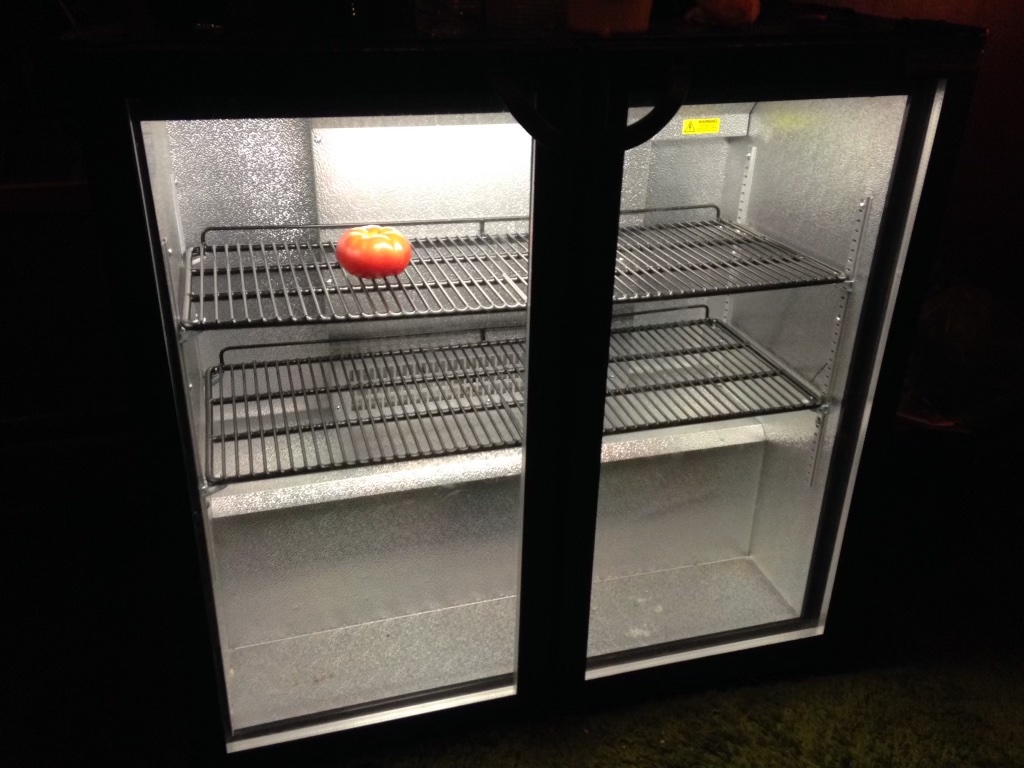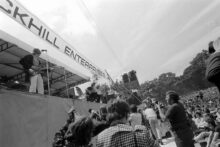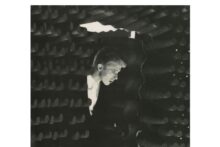To celebrate the regeneration of The Quietus, we wanted to make this month’s subscriber release a bit of a special one that connected to the past. So we called up William Doyle, whose debut EP as East India Youth we released years ago, and asked if he’d be up for doing something. The results are a fantastic six track mini-album made up of three cover and three of his own songs, all dramatically reworked and stripped back to piano, guitar and voice. Doyle does wonderful covers of David Bowie’s underrated 1993 track ‘The Buddha Of Suburbia’, Robert Wyatt’s ‘Sea Song’ and ‘The Kiss’ by Judee Sill alongside his own tracks, ‘Eternal Spring’, ‘A Short Illness’ and ‘Soft To The Touch’. The results are utterly sublime and you can get involved by becoming a Subscriber Plus tier member here. We’re taking a slightly different approach to the text that accompanies this month’s release. We’ve written thousands of words on Doyle over the years we passed the pen to him, and he’s put together a fascinating breakdown of the costs and practicalities of life on the road as an artist at his level, something of a partner piece to the recent articles about how tough it is at the pot-of-humus-leading edge of culture. William Doyle, over to you:
I was thrilled to be asked to provide this month’s subscriber release for The Quietus in their newly regenerated form. If you’re reading this, and you’re aware of me and my work, then there’s a fairly good possibility you’re also aware of my link to this website and the people who run it, but a quick recap might help regardless.
In 2013, The Quietus Phonographic Corporation, founded by Luke and John, released my first EP under the East India Youth moniker. It had four tracks, two of which ended up on my 2014 album, TOTAL STRIFE FOREVER, which was – still surprisingly to me – nominated for the Mercury Prize. The Quietus’s support at that early stage was crucial and is a big part of why I’m still making music today, albeit now under my own name.
Back in 2013, streaming did not have the same stranglehold over the distribution of music as it does now, and indeed it felt like there was something of a boom in the physical music world. Every album seemed to get pressed on double 180 gram vinyl, in all its gatefolded glory. It might not have been the excessive heights of the 1970s and 80s, but in relation to where we find ourselves now it felt like a heady zenith for independent culture. Perhaps it was the last time we weren’t completely oppressed by much larger corporate forces creating a vast sea of inequality in which many publications, artists, venues, labels and festivals are now drowning.
There has been a lot of doom and gloom around lately regarding the plight of the independent musician. However, having just been on a national tour promoting my latest album Springs Eternal, it appears I did not return home completely penniless or completely demoralised. In a relative sense, the opposite has happened. What the hell is all that about? I thought it might be fun to dig into the hows and the whys.
Label and Publishing
For the last three years, I’ve been releasing music on Tough Love, a small but prolific independent label. Since it’s a one-man operation, I don’t get an advance for making records, so there’s less money for elaborate videos or touring. This may seem spartan, but it means we spend wisely, focusing on making the physical product look and sound great and getting decent PR and radio support. On my last LP, Great Spans of Muddy Time, we even turned a profit and did a couple of represses. An indie success!
I’ve been published by Beggars Music and 4AD Songs for the last decade. They own half of my songwriting in exchange for pitching my work for TV, film, and adverts, and pairing me with other artists. They also provide an advance for each album, which helps me just about cover living costs and some upfront touring expenses. They also pair me with other artists in hopes that we may co-write a smash hit that makes everyone a lot of money. That last bit hasn’t happened yet, but I continue to remain hopeful that I’ll accidentally end up in a room with a piano and an Adele one day.
Booking Agent and the Live Sector
Having a booking agent that understands you, your music, and the right context for both is really important. They’ll pair you with the right promoters in any given city who have good links to their local audiences, get as much money as they can from said promoters (which is where they take their commission). A good agent will also route your tour sensibly so you’re not playing Glasgow one night and Falmouth the next. I have worked with only two agents, but both of them have done the above exceptionally.
The touring for this record has happened in three distinct but tightly packed sections.
Section one: a week of acoustic performances in independent record shops. This was all arranged by Tough Love who also paid for the trains I took between each performance. I stayed with friends. There was no fee, but it all helped with the promotion of the album and attracted some footfall into fine independent record shops. It also made me realise that I’m able to perform my songs alone without backing and that doing so made me feel more alive than I have done in years. Playing for and meeting fans for the first time in a while was a real eye-opening experience. Sure, the net positives were more spiritual than financial but that stuff is very, if not more, important.
Section two: eight shows as the support act for BC Camplight who was doing a second go-around promoting last year’s album The Last Rotation Of Earth, and as such had opted to play some cities that don’t always pop up on the circuit: Bedford, Southampton, Bath, Ipswich, Liverpool, Huddersfield, York and Kendal. I was paid £200 per gig. Once again, these shows did wonders for my spirit, playing to full rooms of appreciative people who came and bought merch from me afterwards. Spurred on by my in-store gigs, I took a small set-up of acoustic guitar, laptop and foot pedal, which allowed me to travel by train, staying mostly with friends, with a couple of hotels chucked in. BC Camplight and band took my equipment and a box of merchandise in their van. Legends through and through.
Section three: Ten headline shows, nine in England and one in Scotland (or a “UK tour” as most people sort of offensively call it). Fees were variable, between £250 and one show being £1500. While I ideally wanted to reproduce the sound of this album with a whole band, the economics of doing so just weren’t tallying up. I did apply for two sets of funding for which I was unsuccessful and I was temporarily very depressed about this, but after the success of the in-stores and support tour I decided that doing something pared back did not mean it had to be unexciting or uninventive. It also didn’t mean it had to be totally karaoke versions of the album either.
Crew and Transportation
With this in mind, I recruited my long-standing friend and collaborator Alex Painter to play cello, saxophone, perform backing vocals and, crucially, play the role of driver for the tour. I would pay him below his standard rate for rehearsal and travel days, and roughly a third of each show’s fee, plus some extras thrown in. We’ve worked together a lot over the last few years and we have other work coming in from different sources in the year ahead, so this understanding is why he allowed me to be flexible with his rates. We stayed with friends and did some hotels where it was necessary, opting for reliably cheap and cheerful Travelodges, even if it meant, for instance, driving out of Nottingham to stay in one that was very much inside a service station somewhere outside Doncaster. This was probably the bleakest bit of the tour, though it was followed by one of the most stunning drives to Edinburgh. So, swings and roundabouts.
This was the extent of our touring crew, and that was crucial. We didn’t take a sound engineer, instead trusting the talented in-house engineers over the country. Nor did we have a tour manager. I budgeted the tour. I did all the accounts. I liaised with all the venues and promoters personally. I wrote our tech spec and channel list. I secured all the accommodation and figured out the times we’d need to get between each venue. I’ve had a lot of experience touring and I’ve even done a bit of tour management for others, so I’ve maybe got an advantage over some artists. But I highly recommend that all artists learn and feel comfortable doing these jobs themselves as it will save them a packet in the end. It’s harder, for sure, and of course I don’t want to take work away from the talented TMs and FOH engineers out there, but sometimes these decisions need to be made.
Given that we only needed to transport two people, a cello, a saxophone, a guitar, three boxes of merchandise, a bag of foot pedals, two cases of cables and two small personal suitcases, it meant we could opt for a smaller vehicle than a van. Since our first show of the tour was in Brighton, the inner-city car hire costs were astronomical, but a short and relatively cheap train ride to rent one at Gatwick Airport cut about £300 off the hire price. We got an SUV which was comfortable with a decent enough sound system and it *just about* fit everything we needed in it. Phew!
Merch
I took in between £100 and £350 on merchandise every night, including on the support tour. I feel happy with this amount. It certainly helped petrol costs and paid for the few days of rehearsal we did in between my previous two chunks of touring. We didn’t have tons to sell – one t-shirt design and most of my albums on vinyl and a couple of CDs – but every night I immediately came off stage, grabbed a can of Guinness and went behind the merch table. It’s guaranteed that you’ll sell more by being there yourself. People want to talk to you.
I would owe Tough Love money on each record sold, at their cost price minus 20%, which is how much they bought them from the distributor for. Paying the label back ended up being one of the biggest expenses of the tour, but the money I kept from my end of that arrangement, along with what I made elsewhere pretty much cancelled it out on this occasion.
The Rider

Riders are an extravagance, and I’m 99% sure most bands just write them for the hell of it. To me, it seems slightly ridiculous that you’d need immediate pitta, hummus and celery sticks when you arrive at the venue, even though you’ve often been driving only a maximum of three hours, in which time you’ve probably stopped at a service station and bought something to eat there anyway. You’re either getting fed in-house at this level of touring, or you’ve agreed with the promoter to being paid £10 to £20 each for dinner (or a “buyout” as it’s called). Buyout should suffice.
I knew that this was going to be the case this time round too and yet still I wrote the obligatory carrot stick and hummus hospitality rider. After the second gig I realised I already had an entire unopened bag of carrot sticks in my suitcase and so I contacted the rest of the promoters and told them just to give us the buyout.
The only things we had on the rider by that point were four cans of Guinness for me and a bottle of red wine for Alex. This meant that the show cost for the promoter was slightly reduced, and sometimes this can tip the balance between profit and loss. In the case of our Edinburgh show, because the venue hire was so cheap and we had next to no rider, we actually made extra money on the show as the turnout was one of the best of the tour. It was enough extra that more or less covered the hire of our vehicle for the whole run.
Tickets and How to Sell Them
Not all the shows were as well attended as Edinburgh was. Why am I admitting that? Well, what’s the point in lying, for one. But also, it allows me to talk about a few potential reasons why.
One reason could be that audiences are more selective in recent times; no one has any money after a decade and a half of Tory rule. There’s no way everyone can attend every show that comes through town. Though there is of course the much derided “6 Music dad”. These (often) men are literally propping up independent culture single-handedly. They read about music, they pay to go and see it live with their friends, and then they wait in line to buy a record from you afterwards so they can talk to you about modular synthesisers or how you remind them of someone from the 1970s. It’s a great system! It’s not very sexy, but contrary to popular belief, touring is one of the least sexy things a person can do.
Another reason could be that if you’re an indie/alternative-adjacent artist like I am, then in my experience, getting played on BBC 6 Music in the daytime, especially being playlisted, will sell a lot more tickets. I thought my new album would be perfect fodder for their scheduling, but for whatever reason, apart from a few plays on the fringes of the schedule, DJs and producers at this station were just not picking up on it.
Why? Well, there’s too much music out there, for one. And the majority of good stuff gets missed out. Maybe my record isn’t as good as I think it is? That’s possible. Maybe it’s because a lot of the songs are about dying or being in quite dire circumstances? Or maybe that I’ve been around for over a decade now so am not the hot new flesh on the scene. Who knows?
One final possible reason for low ticket sales could be that, as much as I sympathise with grassroots venue owners and independent promoters, I’m not always convinced about the efforts taken to promote a show. They may make a Facebook event, which very few people look at, post about it on their Instagram once when the show is announced, usually about six months before it happens, and then briefly mention it again in a mailing list along with all the other many gigs they have on that month. One venue we played on this tour, despite it being an in-house promotion, had neglected to even put up a poster of our show anywhere in the venue. Yikes!
I understand, though. Not only are these people often paying themselves a pittance to embark on the labour of love that is putting on gigs, but social media algorithms are pitted against you unless you shove a load of money into them, and even then there’s very little guarantee that it’s going to be seen by a significant percentage of your followers. It’s just a bleak situation. So I get it – from the venue’s and promoter’s perspectives, sometimes it’s just hard to cut above the noise, and if one show is not doing so well then maybe it’s better to funnel your resources to one that is nearly over the line. After all, that sold out show could help prop up the venue for the short term and ultimately that’s the most important thing.
The Soul
I know everything I say here is completely unique to my circumstances. The demands placed on other artists and whole bands is going to be very different to my situation. Also, since I’m not doing another tour soon, the money I’ve made on this one obviously isn’t enough to sustain a full time existence solely from doing it. That’s just a simple fact. As with a lot of other artists I know, they do several jobs within and outside of the music industry. I’m going to be doing some session work in the next few weeks, some tour management later this year. But I love making albums and I love performing and putting on gigs, so any proximity to those things is enough for me, whether I am at the centre of it or not.
I’ve mentioned a few times already that this period of touring was good for the soul in some way. I really mean it, too. I quit touring about eight years ago because I’d done too much of it, the joy had gone away and I was worried about my mental health and the climate. I’m still worried about those things, but I’ve re-approached touring as a vital part of my life. I’ve been doing it since I was 17. It’s hugely exciting to get to play music in a room for people. People want to come and be transported from their lives, and maybe add some extra depth or meaning to their existence. That’s why I go to gigs and that’s what I get from them when they’re really good.
While I’ve been less enthused by some parts of putting this record out, playing in front of an audience again has made all those petty things dissolve and what I’m left with is the feeling that I’ve connected with people and made my life richer because of it. However hard or financially precarious it is to be out there schlepping your gear around from venue to venue, that feeling makes the struggle worth it.
…





